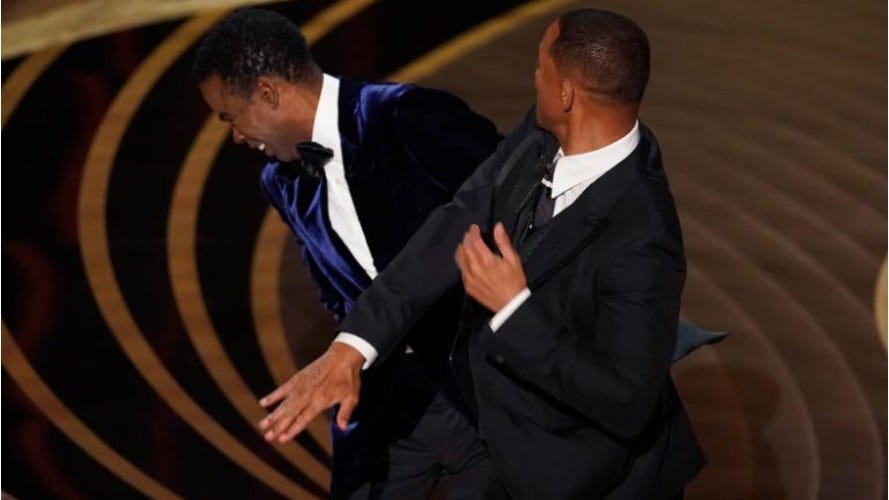Is There Even the Slightest Chance That We, As a Nation, Are Becoming Somewhat Humorless?
Maybe just a smidgen?
My main reaction to The Slap is to wonder: Is this something that comedians need to worry about now? Getting cold-cocked by The Fresh Prince after a 20 year-old movie reference? Is it just Will Smith, or do I need to worry about any star of a beloved ‘90s sitcom? If I make a Cider House Rules joke, is there any chance that Joey Lawrence will rush the stage and kick me in the face? Might I one day get piledrived by Urkel in response to a particularly saucy She’s All That reference? We can’t say “no”.
The Oscars were already the gig that no comedian wanted. Knowing that the eyes of Twitter’s most dyspeptic morons would be on the event, countless comedians turned the job down, and the Oscars went hostless in 2019, ‘20, and ‘21. It’s remarkable that comics are shunning a prime-time gig previously filled by legends like Johnny Carson and Bob Hope because there’s a high probability that they’ll get denounced as History’s Greatest Bigot. And I don’t think that a public assault by a man who was presented with a golden statue 20 minutes later will exactly sweeten the pot.
Is America becoming humorless? I don’t know. People who lean “yes” on that question should concede that there are no solid measures indicating that we are, and people who lean “no” should concede that there never could be any solid measures (what metric would capture giggles per capita?). I won’t argue that we’re definitely becoming more humorless; maybe we are, maybe we’re not, maybe there was an Oscars ceremony long ago where Judy Garland hit Jack Benny with a folding chair and we just forgot. I’m going to argue that if we’re becoming more humorless, that’s bad. Because the inability to take a joke is a sign of weakness and fear.




